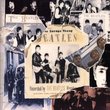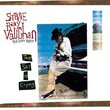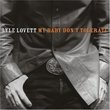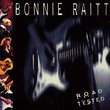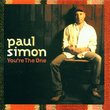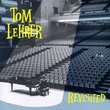| All Artists: Randy Newman Title: Land of Dreams Members Wishing: 1 Total Copies: 0 Label: Reprise / Wea Original Release Date: 9/27/1988 Re-Release Date: 10/25/1990 Genres: Folk, Pop, Rock Style: Singer-Songwriters Number of Discs: 1 SwapaCD Credits: 1 UPCs: 075992577328, 075992577342 |
Search - Randy Newman :: Land of Dreams
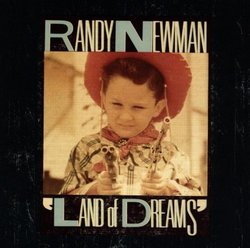 | Randy Newman Land of Dreams Genres: Folk, Pop, Rock
During the 1970s, singer/songwriter Randy Newman distinguished himself by dodging the prevailing confessional trend that was de rigueur for his peers, preferring to build his songs around richly detailed, often grotesque... more » |
Larger Image |
CD DetailsSynopsis
Amazon.com During the 1970s, singer/songwriter Randy Newman distinguished himself by dodging the prevailing confessional trend that was de rigueur for his peers, preferring to build his songs around richly detailed, often grotesque characters, and taking his story lines from anyone's history but his own. By the late '80s, however, his parallel ambitions as a film composer now yielding a separate, equally distinctive body of work, Newman was relaxed enough to allow introspection: 1988's Land of Dreams spins Newman's childhood sojourn in wartime New Orleans into the wonderful, opening title song and the farcical "New Orleans Wins the War," relives grade school traumas ("Four Eyes"), and offers a bleak portrait of a marriage unraveling on the quietly devastating "Bad News from Home." These songs, and two atypically tender love songs, "Something Special" and "Falling In Love," are as close to autobiography as he's ever gotten. --Sam Sutherland Similarly Requested CDs
|
Member CD ReviewsReviewed on 8/8/2006... Randy Newman's songs are always thought-provoking and catchy. The interlude in the first song on the album, "Dixie Flyer", is the lovely lyrical bit heard on NPR's "Car Talk".
CD ReviewsNewman on the brink of big 1980s success... ewomack | MN USA | 12/01/2004 (4 out of 5 stars) "Mark Knopfler, of Dire Straits fame, said about his "collaboration" with Randy Newman that "I'm doing this for Randy, I don't need the cash." In 1988, when Knopfler co-produced this album, Dire Straits were still riding the seemingly permanent wave caused by "Brothers in Arms" (which included the then ubiquitous "Money For Nothing"; MTV and radio stations couldn't stop playing it). He backed Newman on "Saturday Night Live" playing "It's Money That Matters". Newman suddenly appeared everywhere: on "The Tonight Show" and "Late Night With David Letterman". In fact, most of the album was played live on various television shows in 1988. Attentive Newman fans probably thought, maybe, just maybe, this will be Newman's huge break? Finally he will get the recognition he deserves! Then he can quit writing film scores and put out more than two albums a decade!! THANK YOU MARK KNOPFLER!!! Well, of course we know what happened. "Land of Dreams" did well enough ("It's Money That Matters" wafted in and out of the airwaves in 1988), but, alas, was not the huge blockbuster some thought it could or should be. Newman went back to his lucrative day job and didn't surface again until 1995's "Faust". In his wake, however, he left a great album. "Dixie Flyer" and "New Orleans Wins the War" are amongst Newman's best songs. Both talk about his southern American upbringing (both were also produced by Knopfler; his trademark volume-pedal guitar seeps in and out of the mix). "Four Eyes" takes on the subject of childhood cruelty in a sink-or-swim manner imposed by his father. Newman's record of his first taste of reality? The 1980s sythesizers kick in here as well, changing the mood and sound drastically from the first two songs. "Falling in Love" (produced by ELO's Jeff Lynne - so Newman was apparently forgiven for 1979's "The Story of a Rock And Roll Band") and "Something Special" should have put Newman on the charts. Both are uplifting unsappy portaits of that fuzziest of all human emotions. The eerie "Bad News From Home" presents the other side of the story. Nothing special about that love. "Roll With The Punches" reintroduces Newman's famous "Big Jerk" character (the same who sang "Yellow Man", "You Can Leave Your Hat On", "Memo To My Son", "Short People" and many others). It speaks for itself. "Masterman and Baby J" doesn't play too well these days. In 1988 it played like a great parody of the lame pop rap that was just beginning to infiltrate the airwaves. Unfortunately, it hasn't aged well. The same can be said for "Red Bandana". These two tracks are the album's weak spot. "Follow The Flag" presents an empty anthem. Which flag is being followed? The assumption is the American Flag, but why think that? It more reflects on people's tendency to group under a symbol. "It's Money That Matters" sounds a little too real for comfort at times. Lyrically, it now seems a bit too prophetic for its own good. Still a great song. Then the devastating closer: "I Just Want You To Hurt Like I Do". On tv and in concert, Newman often introduces this one as his "We Are The World". He asks the audience to imagine a big line of people, hands joined, all swaying to the rhythm and singing in unison. The song is also amongst Newman's best and most poignant. Whew, what a closer. Newman closed out the 1980s with incredible style. Unfortunately he did only produce two non-film albums that decade (and went on to do the exact same in the 1990s). Newman never lost it, and still hasn't. One wonders if the sheer paucity of his later output contributes to his continued quality. If so, then the wait between albums was well worth it." This Is Randy's Masterpiece R. W. Rasband | Heber City, UT | 06/22/2000 (5 out of 5 stars) "This is Newman's greatest album. The first six songs are a kind of spiritual autobiography, leading from childhood innocence to adult disillusion. They also contain some of the wittiest lyrics and most gorgeous music you have ever heard. The next few songs show Newman the narrator and critic considering the society around him with his bemused, jaundiced eye. Then he returns to autobiography with the devastating final two songs: you will be absolutely chilled by the classic "I Want You To Hurt Like I Do." This music will live long after most top-ten albums have been forgotten."
|

 Track Listings (12) - Disc #1
Track Listings (12) - Disc #1
